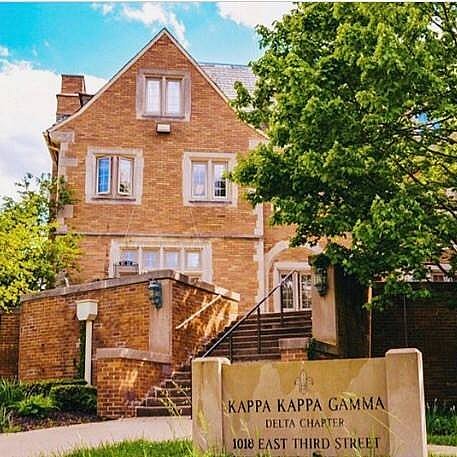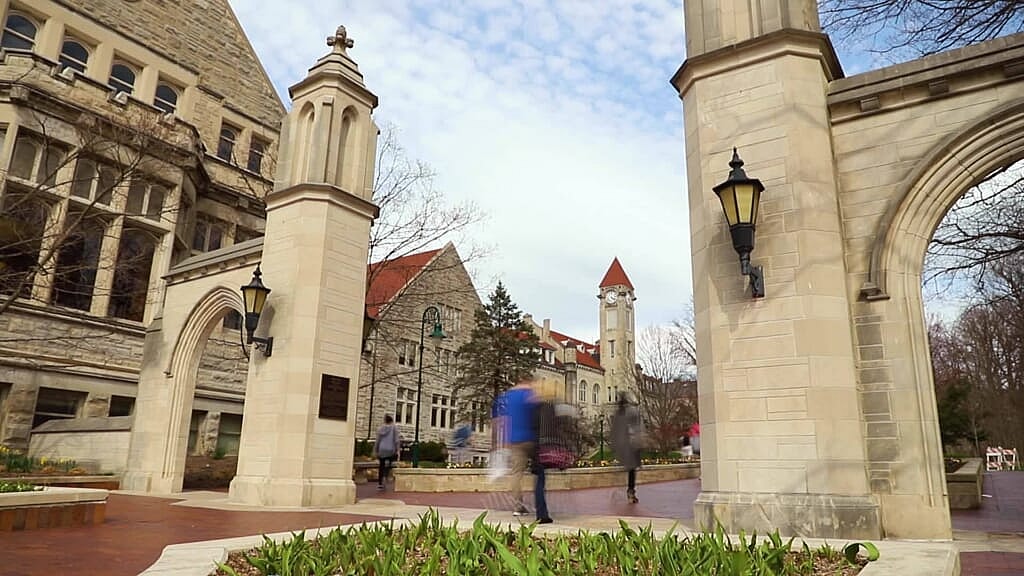A young woman is accusing sorority Kappa Kappa Gamma of hazing her.
Langdan Willoughby of Indiana University Bloomington says she was hazed by the sorority back in 2020. Greek organizations have been suspended in the past at the school for similar activities, per the school’s paper, Indiana Daily Student. And now Kappa Kappa Gamma can be added to the list.

According to the Indy Star, the organization has been suspended.
“Delta Chapter of Kappa Kappa Gamma at Indiana University is one of our longest-standing chapters, yet we will not stand by while instances of violence or the threat of violence are perpetuated among our membership,” per a statement by the sorority’s national organization last week. “The health and safety of our members are always our top priority.”
Other individuals who were pledges at the time with Willoughby, 19, say what she alleges is true. The teen tells the publication she was told by the members of the sorority, to “Get on your knees” because “The boys are coming!” while in a dark basement at Kappa Kappa Gamma house at 1018 East Third Street.
Read More: Spelman College nearing $250 million strategic funding goal
Willoughby and about 50 other pledges were allegedly told they would either have to inhale cocaine or perform fellatio in a game called ‘blow or blow.’ The sisters of Kappa Kappa Gamma were apparently running around with paddles in lingerie and took the pledge’s cell phones.
But instead of being forced to perform an act, the sisters yelled, “Just kidding!” The entire situation had been a prank but a psychologist who spoke to the publication said the acts are still considered hazing because they were meant to intimidate and define hierarchy.
According to IU, hazing is described as “any activity which subjects another person, whether physically or mentally, emotionally or psychologically, to anything that may endanger, abuse, or degrade or intimidate the person as a condition of association within a group or an organization, regardless of the person’s consent or lack of consent.”
“We can’t confirm or not a specific allegation as it may be part of an ongoing investigation,” said Chuck Carney, a IU spokesperson in an email last week.
“Student health and safety is of paramount importance to Indiana University. The university does not tolerate acts of hazing and takes hazing allegations very seriously.”

But Willoughby says she was left scarred.
“I was fully physically, emotionally and spiritually disturbed by the entire thing,” said Willoughby, who left the organization last summer due to the events. She said as one of the only Black women she also experienced racism while being in the organization.
Read More: A price tag on trauma? College town weighs Black reparations
“There’s no real sisterhood,” said Willoughby. “With all of the sexual harassment that goes on at IU’s campus, I don’t see why Kappa would subject another woman to that.”
An alumna who pledged in 2017 says she went through a similar experienced with she sorority.
“It’s a prank to make you think you’re about to get hazed, but you find out that no hazing actually occurs,” she said. “It’s a prank on the fact that other sororities haze.”
Her group was instructed to run through the woods naked. She says she does not agree with the ritual.

“I don’t think it’s funny,” said the woman who asked to remain anonymous. “If you really fall into it and believe it, you’re worried that it will actually happen.”
As some institutions practice hazing, others are trying to make sure students are able to complete their education. As reported by theGrio, Morehouse College is helping Black men finish college without having to return to campus.
The all-male historically Black school is collaborating with an online program manager to help those who don’t have enough credits to graduate finish school. Morehouse announced that the new initiative will launch this summer.
“They had a desire to finish their degree but didn’t have the ability to stop what they were doing in the world and go back to school,” Morehouse College President David A. Thomas, who came up with the idea, told The Washington Post.
He said young men who attended the Atlanta-based college but did not have the chance to finish would often express they wanted to finish their degree but couldn’t do so due to a variety of factors.
The men Thomas referred to are far from alone. There are 3 million Black men who have college credits but no degree, the Post reported, citing the Census Bureau.
Have you subscribed to theGrio’s podcast “Dear Culture”? Download our newest episodes now!
TheGrio is now on Apple TV, Amazon Fire, and Roku. Download theGrio today!

